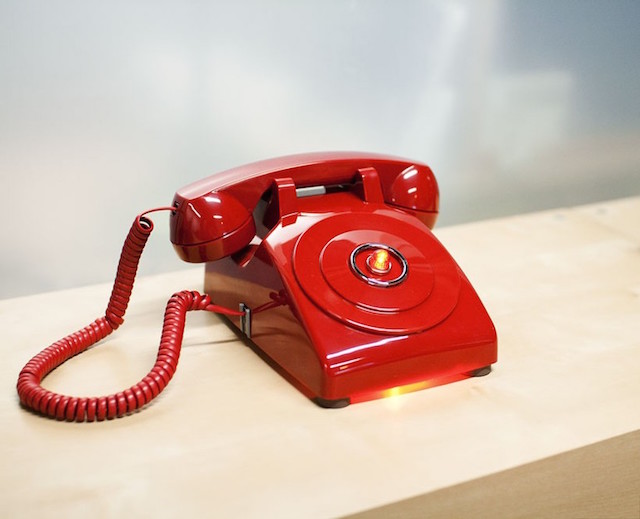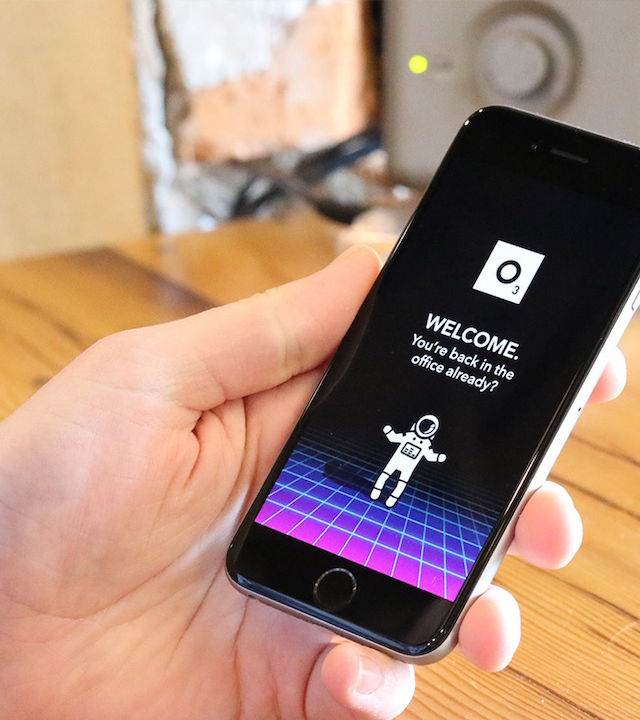Product incubators and innovation labs are on the rise, on both the agency side and the client side. As a business owner, UX professional and digital product enthusiast, it’s exciting for me to see the need for an “innovation team” becoming as ubiquitous as a sales, marketing or engineering department. But one has to ask: is it worth the investment?
LABS ON THE RISE
Over the past several years, innovation labs have become quite common and have been implemented by all sorts of companies from large corporations to nonprofits. While their missions vary across organizations, the typical—publicly stated—motivation is a need to solve problems in new and exciting ways. This could mean new product development, entirely new business divisions, or corporate sponsored startups.

The Breakfast B•Line
While it may be a bit early to collectively judge the results of these programs, there are many examples of lab initiatives that have netted large gains for organizations. Amazon’s Lab 126 has been an uber-successful labs program that has produced products like the Kindle and, more recently, the Amazon Dash Button and Echo. From a product incubation standpoint, we can point to the history of a product like Slack as a perfect example of technology that was born out of internal development and innovation practices.
And then there are entire companies that are, essentially, innovation practices. I’m a huge fan of Breakfast. They are a rapid product and prototype company that develops intellectual property. Put simply, they are modern day inventors who use technology and design to blow your mind! Though they’ve done so many cool things, my favorite is still their B•Line. Instead of cold-calling new clients, they mail prospects a big red phone that calls the three co-founders of Breakfast. A brilliant idea on many levels.
ENTER O3 LABS
This past year, my business partner and I decided to take our chances with a labs program at O3. First off, some background: we’re a digital product agency located in Philadelphia. We work with all sorts of companies to plan, design and develop digital products and applications. From our point of view, a lab program is a great way to not only expand our knowledge base and expertise, but to create a system to explore and introduce new technologies to our clients, and possibly to create spin-off product opportunities for our business.
We also justified the effort by trading the time that we were spending on blogging and article creation and put that towards labs instead. Our rationale was that, after years of doggedly promoting the virtues of blogging to our staff, it was clear that only a handful of people would ever truly be interested in actually writing. Alternatively, we figured if we gave these super talented folks a platform to build something unique, we’d have universal buy-in and a better product to market our collective skills.
Before we dove right in however, it was important to both of us that we create goals and boundaries for development. This meant that all project concepts had to be reviewed and approved by an executive labs committee. We did this to ensure that each labs concept had some sort of larger business application. It also meant that budgets would be applied and strictly enforced.
Of course, we also wanted this to be fun! So, we provided an opportunity to ALL staff members to participate. This was particularly important as we did not want this to become just a development or design initiative. So, we created a system where any staff member could submit a labs idea during a submission period. Once the executive committee had a chance to review, we narrowed the concepts down to the best three and had the staff vote on which ones we should develop. After establishing our process, we selected and executed our first labs project – our theme music app.
O3 THEME MUSIC

There’s No Snooze Button on Awesome
Let’s face it, even when you like your job as much as we do, Monday mornings can be rough. For our first labs project, we set out to make those first few minutes in the office just a bit more pleasant. Imagine opening the front door, slogging up the steps, then…BAM…your theme music comes on. All of a sudden, a great sense of euphoria overcomes you. You smile. Birds chirp. It’s magical.
The tech is fairly simple. We built custom iOS and Android apps that communicate with iBeacons to see arrivals, and a Raspberry Pi connected speaker plays a clip of the chosen jam. So, whether someone’s a rocker, a hip-hop enthusiast or a slow jam aficionado, all they need is the app and a jam, and they’re good to go.
From a practical standpoint, it’s not hard to see the business application for this pairing of technology; iBeacons are everywhere. From digital scavenger hunts, to production stats on a factory floor, or personalized greetings and promotions in a retail environment, the power of creating a solution where an experience is altered by simply entering a space has widespread possibilities.
SO FAR, SO GOOD
In our experience, the lab program has been a huge success. We’re on our 3rd official cycle (we budgeted for four this year), and we’ve managed to weave in a handful of mini-labs experiments as well. It’s been a ton of fun and the additional knowledge has been invaluable. While we’ve learned a ton in a short period of time, here are a few of the key takeaways:
- Keep it simple—I’d argue that some of our best labs work thus far has been our mini-labs projects. They basically have little-to-no-budget and are generally built to satisfy logistical problems around the office. Our Roombot project is an example of this. It’s a native OS X app that connects with our Google Calendars and office lights. As meeting times come to an end, the lights dim and people are notified that it’s time to clear out for the next group. Believe it or not, this only took about a week to produce and has found its way to client proposals already.
- Value, not polish—It’s easy to go off on tangents with these things. As an agency, we’re crazy about fine points and extra polish on everything we do. With labs work however, we needed to change that mindset to focus on delivering value, not polish. So, for example, interfaces tend to be minimal and rather bland in favor of providing more functionality.
- Empathy for our clients—I think the best result of our labs work is how much it has made us empathize for our clients. While a core tenant of our business is to collaborate and “partner”, sometimes it can be difficult to see things from a client’s perspective when you’re deep in the trenches. When we’re building our own products, we’re far more cost conscious from both a time and materials standpoint.
- New skills and services to offer—Certainly the most important value for O3 as a business is to develop our core skillset in order to create more value for our clients. From a technology perspective, this means that we’re starting to think outside of the browser to provide solutions that transcend desktop or mobile devices. From an experience standpoint, we’re now forced to consider physical processes as they relate to the digital experiences we create.
- Great for marketing—So while it’s not our only reason for implementing this program, I’d be remiss if I didn’t also state how successful it has been as a marketing initiative. We’ve received numerous mentions in various publications. That’s a win / win.
TO LAB OR NOT TO LAB
While our experience has been positive one, there are skeptics who doubt the value of labs programs. First, the feeling is that these ventures are wasteful and distracting to an organization’s core business objectives. Second, the sense is that innovation labs teams can alienate the rest of the “normal” staff by making them feel that perhaps their work is NOT innovative. The argument goes on to point out that if the entire company has “innovation” baked into their daily processes, then is a labs initiative really necessary?
It’s an interesting discussion, and certainly one that I’m keen on exploring. It’s also the panel topic we’ll be debating at the Forge Conference on October 9 in Philadelphia. With representatives from both the agency and client side, we’ll be touching upon many points both parties need to consider before diving right in. Let us know what you think. Are labs important to all organizations? Should innovation be a standard, or is best left to the specialists?